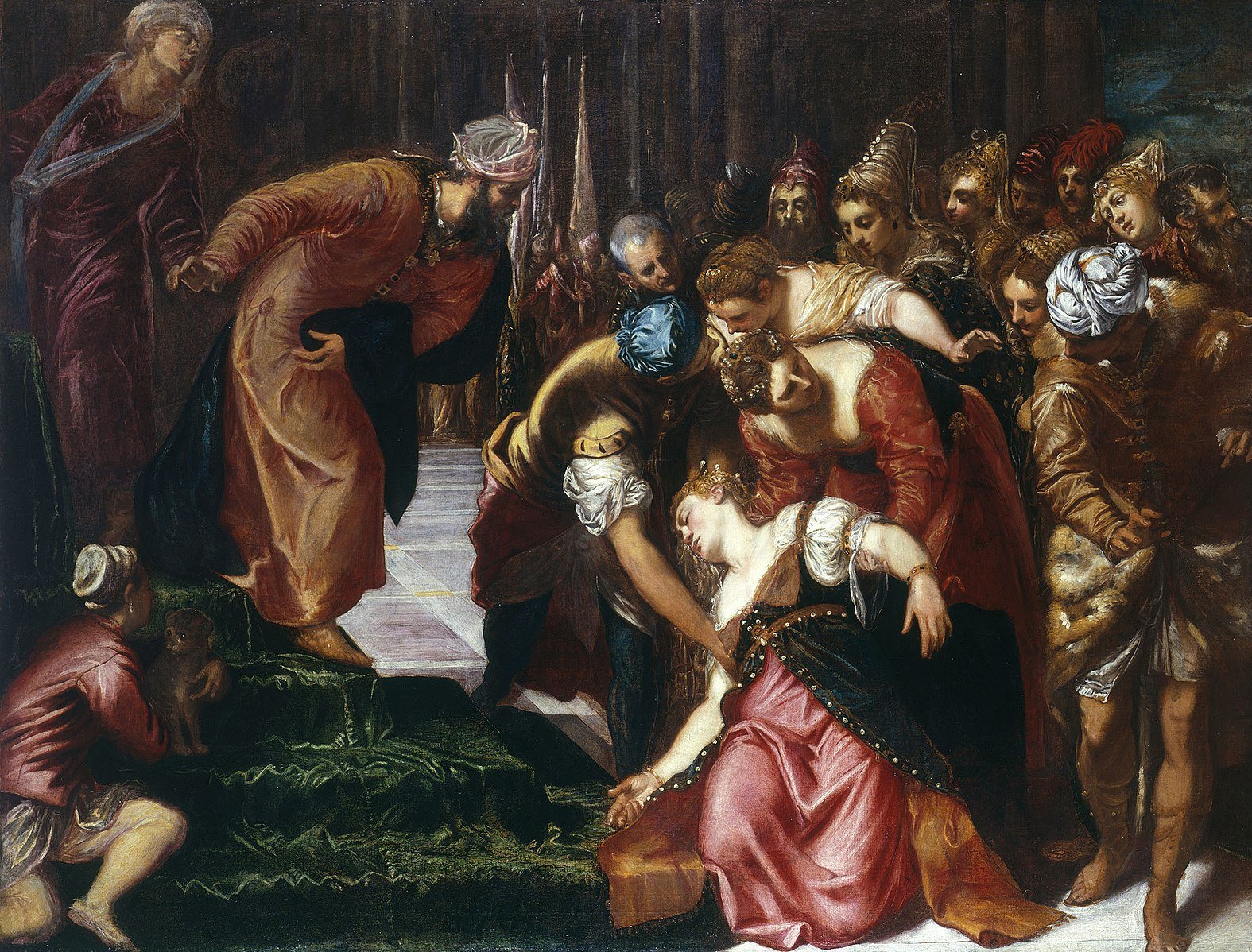LECTURE 9:
Today, the Bible is perhaps one of the world’s most translated texts—and even in the ancient world it was translated into other languages. What clues can one of its earliest translations, the Greek Septuagint, give us about the formation of the modern Bible? In this lecture, we trace the Esther story across two languages, along the way learning about the development of a Bible for Greek-speaking Jews and the medieval standardization of the Hebrew Bible that will become the basis for our Bible today. We come to see that every translation is an interpretation, and every Bible has a story behind it.
How Translations “Write” the Bible
EXPLORE
In this lecture, I mention how Greek Esther shows up in renaissance paintings. Here are two of those paintings:
Esther before Ahasuerus, Jacopo Tintoretto (1519-94), Wikimedia Commons
Esther before Ahasuerus, Artemisia Gentileschi (1593-c. 1653), Wikimedia Commons

